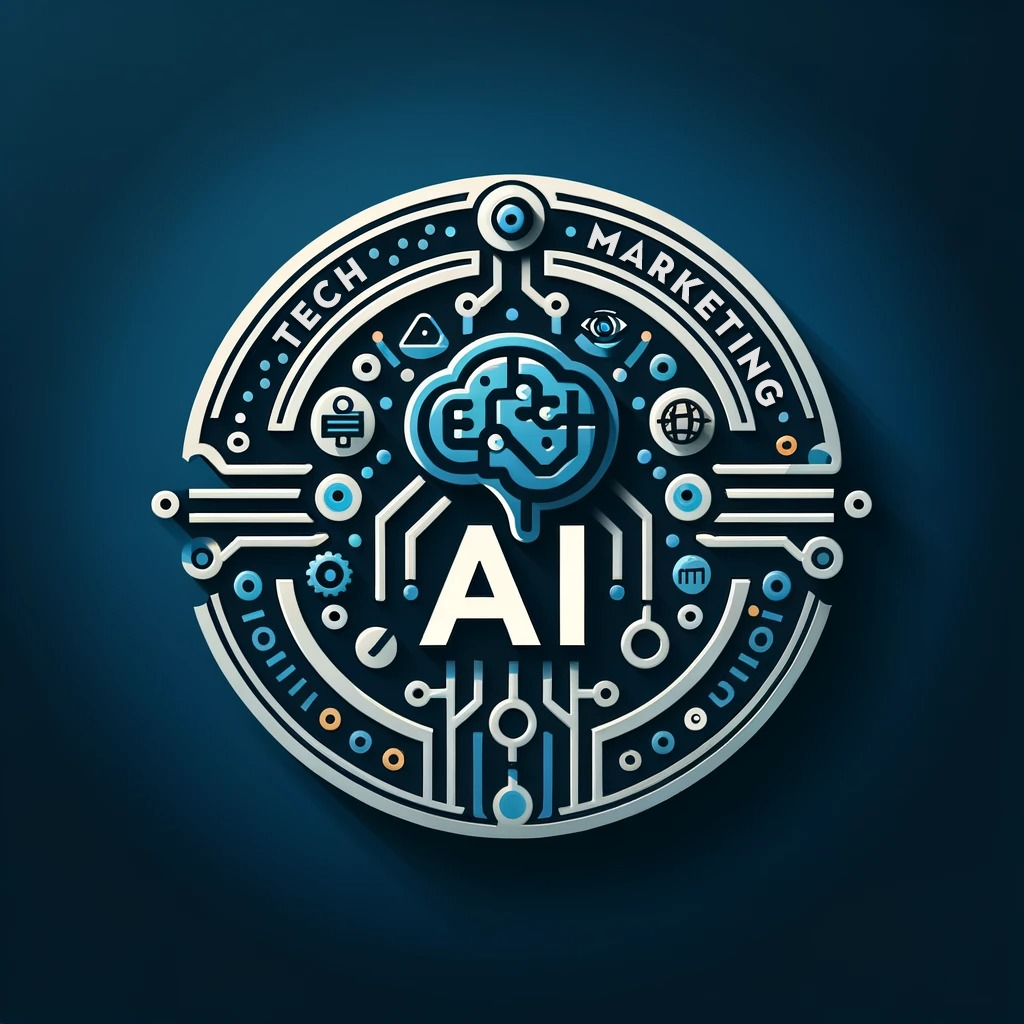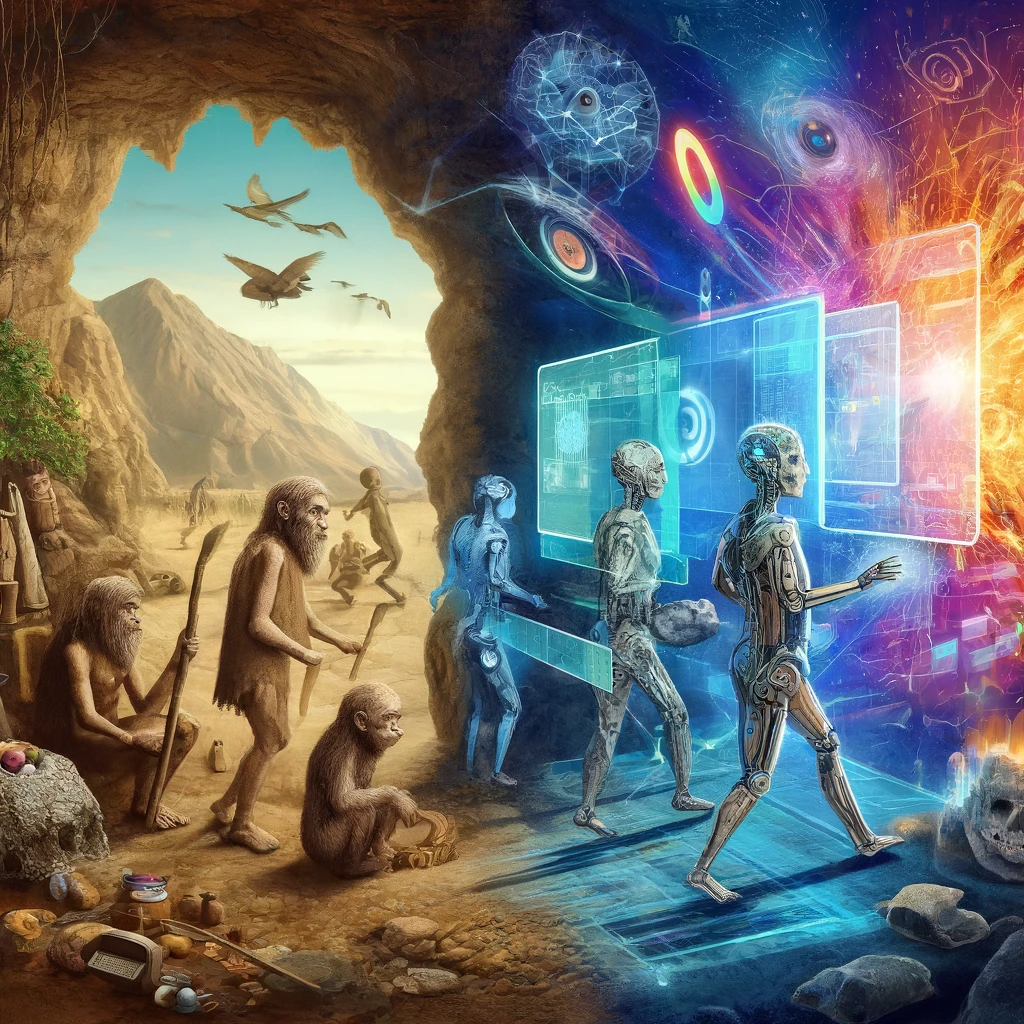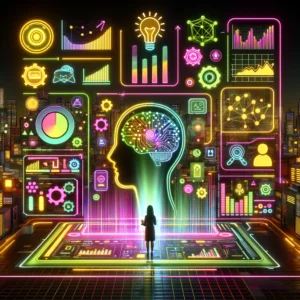Introduction to AI in Digital Marketing
Artificial Intelligence (AI) has transformed the digital marketing landscape, offering unprecedented opportunities to enhance efficiency, understand consumer behavior, and personalize marketing strategies. As AI technologies evolve, they continue to shape the way brands interact with their audience, making AI not just a tool but a fundamental component in the arsenal of modern digital marketers.
The Role of AI in Digital Marketing
AI has several key roles in digital marketing, each contributing to more effective and efficient marketing processes:
- Predictive Analytics: AI excels in analyzing vast amounts of data to forecast future consumer behaviors. This capability allows marketers to anticipate market trends, understand customer needs, and adjust their strategies accordingly.
- Customer Segmentation: Through AI algorithms, marketers can identify distinct groups within their audience based on various criteria such as demographics, buying behavior, and social data. This facilitates highly targeted marketing.
- Personalization: AI enables the creation of personalized marketing messages based on individual user behavior. This means ads, emails, and even content can be tailored to resonate with the user’s specific interests and needs.
- Chatbots and Virtual Assistants: These AI-driven tools interact with users in real-time, providing instant customer support and enhancing user engagement without the need for human intervention.
- Content Generation: AI can assist in creating basic content for various platforms, which can save time and resources while maintaining consistent output.
Leading AI Tools in Digital Marketing
Here’s an overview of some top AI tools that every digital marketer should consider integrating into their strategy:
- Google Analytics Intelligence:
- Use: Leverages machine learning to help marketers understand website traffic and user behavior.
- Example: It can predict future actions of users, like the likelihood of purchase based on past interactions.
- HubSpot’s Marketing Hub:
- Use: Utilizes AI to enhance CRM capabilities and automate marketing processes.
- Example: Offers predictive lead scoring to prioritize leads most likely to convert.
- Salesforce Einstein:
- Use: An AI layer integrated into Salesforce providing insights across sales, service, and marketing clouds.
- Example: Einstein can automate data entry and predictive forecasting, enhancing customer relationship management.
- Chatbot Tools (e.g., ManyChat, Drift):
- Use: Automates interactions with customers on websites, social media, and mobile apps.
- Example: Drift’s chatbots qualify and connect prospects to the right salesperson automatically.
- AI-Powered PPC Campaigns (e.g., Albert):
- Use: Automates and optimizes pay-per-click (PPC) campaigns.
- Example: Albert analyzes performance data to adjust bids and test ads without human intervention.
- AI Content Creation Tools (e.g., Jasper, formerly Jarvis):
- Use: Helps in creating content by providing suggestions, rewriting, and generating readable text based on input keywords.
- Example: Jasper can generate blog posts, social media content, and marketing copy efficiently.
Global Impact and Adoption of AI in Digital Marketing
The adoption of AI in digital marketing varies across different continents and countries, reflecting the level of digital maturity and technological readiness:
- North America: The U.S. and Canada are leaders in AI adoption, with many companies integrating AI into their digital marketing strategies to personalize customer interactions and optimize marketing spend.
- Europe: Countries like the UK, Germany, and France have shown significant growth in AI usage in marketing, driven by GDPR compliance and the need for improved data handling capabilities.
- Asia-Pacific: With tech hubs like Singapore, Japan, and South Korea, this region uses AI to gain insights into customer behavior and improve digital advertising strategies.
- Latin America and Africa: These regions are gradually adopting AI in digital marketing, focusing on improving customer engagement and expanding digital presence.
AI is reshaping digital marketing globally, creating a more connected, automated, and data-driven industry. It is not just a passing trend but a cornerstone of future marketing strategies. As technology advances, the potential for AI in digital marketing will continue to grow, offering new tools and possibilities for marketers around the world.
AI Integration Across Platforms and Tools
In recent years, AI’s footprint has expanded beyond traditional digital marketing tools into everyday applications, enhancing both business efficiency and user engagement:
- Search Engines: Google, Bing, and other search engines use AI to refine algorithms for better search result accuracy and personalization, directly impacting SEO strategies.
- Social Media Platforms: Facebook, Instagram, and Twitter employ AI for content moderation, targeted advertising, and enhancing user experience through personalized feeds.
- Messaging Apps: WhatsApp and Telegram are integrating AI to offer smart replies and chatbot functionalities, helping businesses automate communication with customers.
New and Upcoming AI Tools for Digital Marketers
The AI tool landscape is constantly evolving, with new entries that promise to revolutionize how marketers conduct their campaigns:
- OpenAI GPT-4:
- Use: Offers advanced natural language understanding and generation, ideal for creating engaging and contextually relevant marketing content.
- Example: Can be used to draft personalized emails at scale or generate creative content ideas.
- Adobe’s Firefly:
- Use: AI-powered graphic design tool that simplifies the creation of visual content for marketers.
- Example: Automatically adjusts designs to fit brand guidelines and aesthetic preferences.
- PaveAI:
- Use: Turns analytics data into actionable insights and reports, enabling marketers to make data-driven decisions.
- Example: Analyzes traffic and conversion data to suggest optimization strategies for digital campaigns.
How AI Benefits Daily Work and Business Enhancement
AI’s benefits extend into daily operations and strategic decision-making in business, providing a competitive edge and operational efficiencies:
- Automated Customer Service: AI-driven chatbots and virtual assistants can handle routine inquiries 24/7, improving customer satisfaction and freeing up human resources for more complex tasks.
- Efficient Resource Management: AI tools like Asana and Trello are integrating AI to suggest project timelines, allocate resources, and predict potential bottlenecks in workflows.
- Enhanced Decision Making: AI can analyze market data to provide forecasts and trends, helping leaders make informed strategic decisions faster.
Case Studies: AI in Action
To illustrate the real-world impact of AI in digital marketing, here are a few case studies from different sectors:
- E-commerce: Amazon uses AI for product recommendations, tailored search results, and predictive inventory management, significantly enhancing customer experience and operational efficiency.
- Finance: American Express uses machine learning to detect fraudulent transactions and refine credit risk profiles based on consumer behavior patterns.
- Healthcare: Pharma companies employ AI to personalize patient engagement strategies, optimizing outreach and informational campaigns.
Future Trends in AI-Driven Marketing
Looking ahead, the role of AI in digital marketing is set to grow even more significant:
- Voice and Visual Search: As voice-activated devices become more common and image recognition technology advances, marketers will need to adapt strategies to include voice and visual search optimization.
- AI Ethics and Privacy: With increasing use of AI, there will be a heightened focus on ethical considerations and data privacy, influencing how AI tools are designed and used in marketing.
- Augmented Reality (AR) and Virtual Reality (VR): AI will play a crucial role in creating immersive customer experiences through AR and VR, offering new avenues for interactive marketing.
Conclusion
AI is not just transforming digital marketing; it’s revolutionizing how businesses operate and engage with their customers. By embracing AI tools, marketers can unlock new levels of precision, efficiency, and personalization, leading to better business outcomes and customer satisfaction. As AI technology continues to evolve, staying updated with the latest tools and trends will be essential for any marketer aiming to succeed in the digital age.




